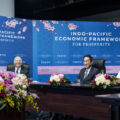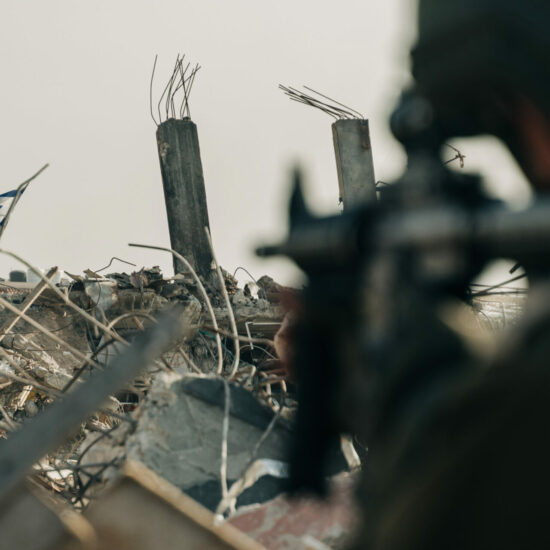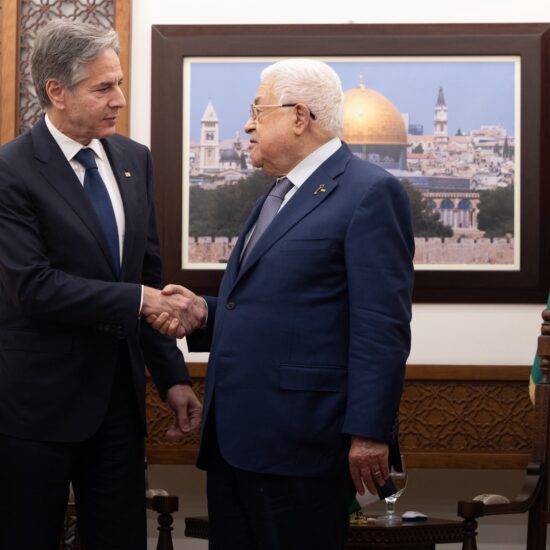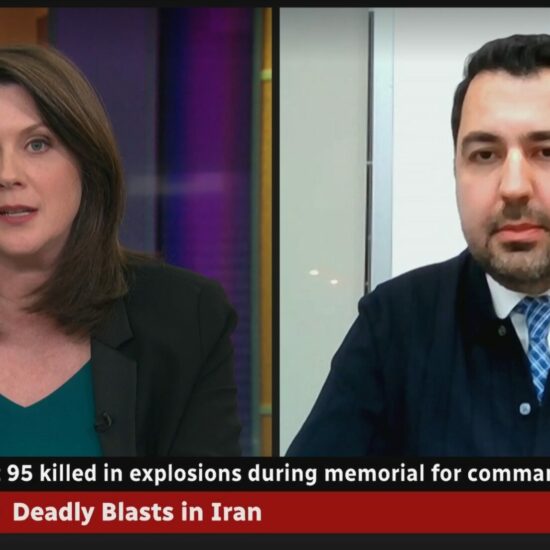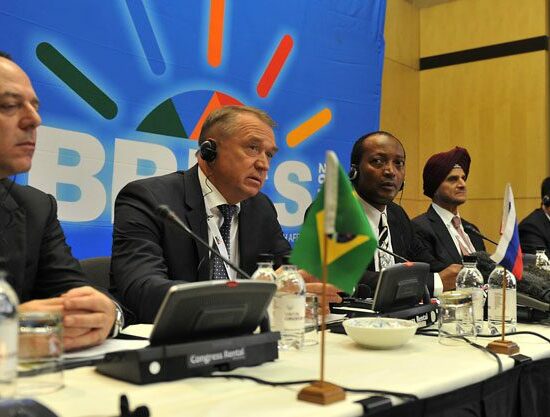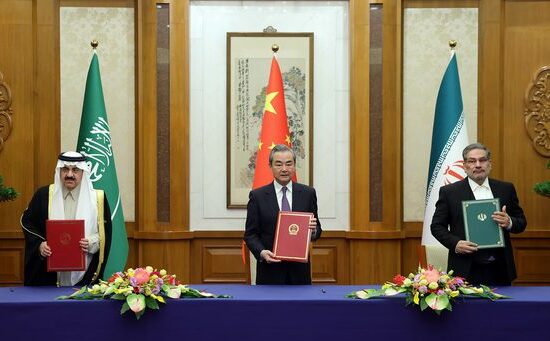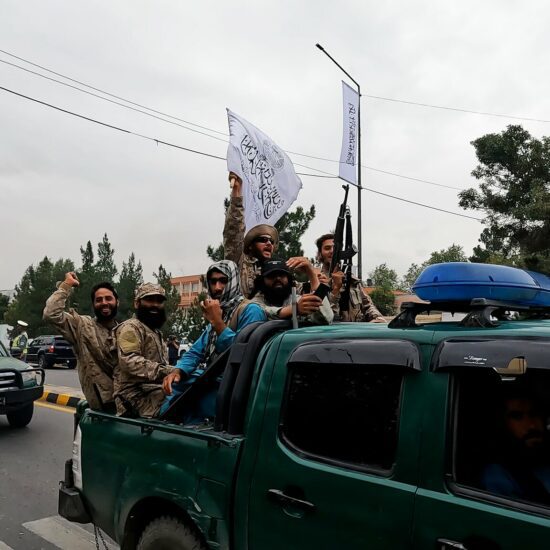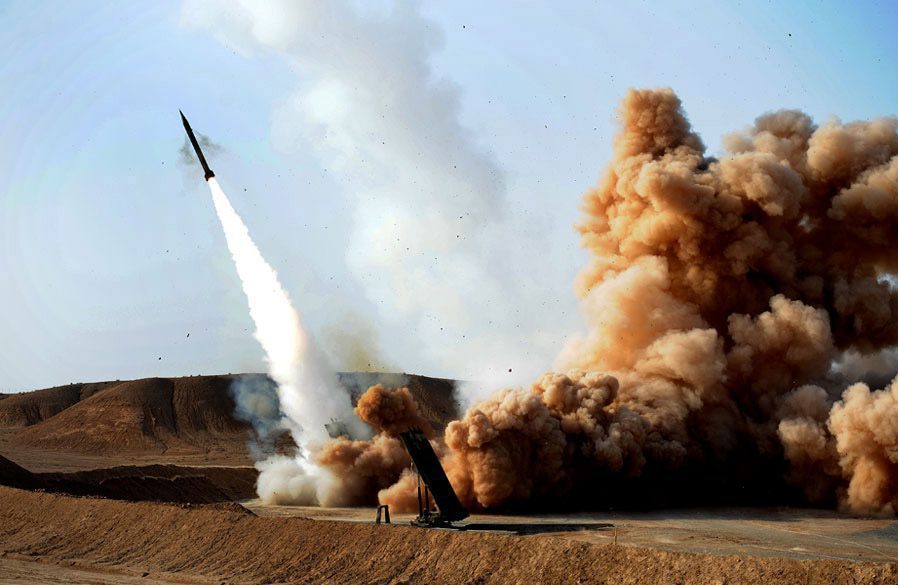
Image credit: Mohammad Sadegh Heydari
By Pouyan Kimiayjan
In spite of the fact that the transatlantic alliance has been divided over the Trump administration’s unilateral withdrawal from the Iran nuclear deal, the United States and its European allies have shared concerns on the country’s ballistic missile program. Ending the proliferation of ballistic missiles and halting their launch and development was among the 12 tough demands US Secretary of State Pompeo set for Iran. On the other hand, the European Union has recently expressed concern that the country’s missile launches deepen mistrust and undermine regional stability. France, in particular, has been explicit in calling on Iran to abandon its ballistic missiles, warning that new sanctions loom if missile talks fail. In response, Iran has categorically denounced calls for limitations on its military capabilities, arguing that its missiles program is for defensive purposes only.
We’ve seen this cycle of demands and rejections before. Following the signing of the nuclear agreement in 2015, after having failed to include missile talks in the nuclear conversation, the United States and its European counterparts hoped that the deal would serve as a springboard to bring Iran to the table and address Western concerns. Iran refused to negotiate. From an Iranian perspective, the country’s missile program is non-negotiable, with or without US compliance with the nuclear deal. Though the moderates and conservatives have sparred on the timing of missile launches, there exists a political consensus in Tehran on the necessity of preserving and advancing the program. The public opinion in Iran also seems to support that the missile program plays important role in shaping the country’s defence policy. According to a 2018 poll conducted by Iranpoll.com and the Center for International and Security Studies at Maryland (CISSM), more than two-thirds of Iranians support Iran’s missile program.
Furthermore, the underlying factors that prompted Iran to strengthen its missile capability have less to do with the nature of Iran’s governing system, but rather stem from the country’s historical sense of strategic solitude in the region and the western-led arms embargo on its conventional military power.
Lonely in a Volatile Region
Iran is located at the crossroads of Western Asia, linking Central and South Asia, the Caucasus, and the Middle East. The country has the world’s second largest proven reserves of natural gas and the world’s fourth-largest proven oil reserves. Therefore, Iran is understandably subject to the geopolitical interests of global powers. However, though its geography provides it with an exceptional trade route and vast energy reserves, the country is located in one of the most volatile regions in the world. Since the 1979 Iranian revolution, which toppled the US-backed monarch Mohammad Reza Pahlavi, Iran and the United States have engaged in a four-decades-long cold war. Following 9/11, the US-led war on terror brought American troops to the region, particularly in the Persian Gulf, Iraq, and Afghanistan, which resulted in an encirclement of Iran’s borders. Moreover, since 2003, the region has been engulfed in civil wars and sectarian conflict, further threatening Iran as the only non-Arab and Shiite-majority country in the Middle East. Subsequently, the 2006 Israeli-Hezbollah conflict and the ongoing Syrian civil war exasperated hostilities with Israel and Saudi Arabia.

In addition, history plays an instrumental role in shaping the calculus of Iran’s foreign policy. Centuries of foreign interference, particularly the 1953 CIA-Mi6 engineered coup against the country’s first democratically elected Prime Minister and the legacy of the Iran-Iraq war are prevalent themes in the Iranian psyche. To that end, the country’s foreign policy still functions under the banner of its famous revolutionary slogan, “Neither West, Neither East, (only) the Islamic Republic.” In this regard, Iranians have a historical sense of strategic loneliness and solitude, serving as a critical factor in shaping the country’s security-defense doctrine.
1980–1988 Iran-Iraq War
Against this backdrop, it is imperative to provide a historical assessment of the Iran-Iraq war to grasp a clear understanding of the relationship between Iran’s sense of strategic solitude and its ballistic missile program. During the 1980–1988 Iran-Iraq war, amid the cold war era, the United States and the Soviet Union formed an unconventional alliance in backing Saddam’s invasion of Iran. While Saddam was armed with modern and sophisticated weaponry, an isolated and under-supplied Iranian army was outgunned and struggled to match Iraqi firepower. By 1981, Iraq used Scud missiles to bomb two major Iranian cities Dezfoul and Ahvaz. The missiles were used as terror weapons to bring the war to the Iranian population. By the mid-1980s, Iraq supplied these missiles with chemical warheads, striking Iranian troops, cities, as well as Kurdish dissidents in north-eastern Iraq.

Adding more frustration for the Iranians, the United States provided material and intelligence to Saddam Hussein. The Reagan administration sold materials to Iraq that were used for the manufacture of chemical weapons. Along with the Americans, Germany too helped Saddam produce chemical weapons. Moreover, the CIA provided vital intelligence that helped Iraq use these chemical weapons against the Iranians. Amid Iraq’s blatant violation of the Geneva Protocol, the United Nations Security Council ignored Iran’s calls for international condemnation.
The Arms Embargo
Following the 1979 Islamic Revolution, in response to the Carter administration’s acceptance of the Shah to seek medical treatment on US soil, Iranian students stormed the American embassy and took US diplomats hostage for 444 days. In response, the US imposed unilateral sanctions and froze Iranian assets. In 1984, during the course of the Iran-Iraq war, the US prohibited all weapon sales to Iran. Furthermore, the revolution had led to the departure of American military advisers who played a key role in maintaining Iranian military equipment. Consequently, during the initial years of the Iran-Iraq war, the country’s American-supplied military was deprived of critical spare parts and proper maintenance.

The US-led arms-embargo had significantly weakened Iran’s conventional capabilities compared to Iraq’s well-equipped military. The Iranians were compelled to advance indigenous means of defense and resort to asymmetrical methods of warfare to counterbalance the Iraqi threat. For example, during the 1980s, the Islamic Republic painstakingly acquired few scuds from Libya and North Korea. However, the two countries quickly withdrew their support and propelled Iran‘s Revolutionary Guard Corps (IRGC) to reverse-engineer the missiles, thus laying the foundations of Iran’s indigenous ballistic missiles program. Meanwhile, the Islamic Republic’s aging air force, having failed to purchase Russian and Chinese fighters, has prompted policy-makers to further invest in the defense industry’s production of medium-range and long-range missiles.
No Room for Compromise
Although the United States and its western counterparts have imposed sanctions on Iran’s military, China and Russia have also been reluctant to provide Iran with modern weaponry. Therefore, it has become an imperative for Iran to pursue an indigenous defence doctrine that enables the Islamic Republic to curb the impact of sanctions and pursue its independent foreign policies. Regardless, in a meeting with the European Parliament, Iranian Foreign Minister Mohammad Javad Zarif signaled that Iran would decrease its military expenditure, only if the Saudis follow suit. It is noteworthy to point out that a decrease in military expenditure does not equate with an abandonment of the missile program. Nonetheless, the Iranian leadership voluntarily imposed a limit on the country’s missile range to 2000 kilometers.
In addition, the UN Security Council resolution 2231, which enforced the JCPOA (Iran nuclear deal), allowed Iran to purchase military equipment after 5 years, and further allowed the country’s military to build missiles that are not “designed” to carry nuclear warheads. To that end, resolution 2231 provided a legal framework for Iran’s missile program.
However, following US withdrawal from the nuclear deal, there was little room for compromise over the country’s military expenditure. The United States adopted a hawkish foreign policy and sold substantial amounts of military equipment to Saudi Arabia, one of Iran’s major regional rivals. On the other hand, US departure from the agreement further destabilized the region, as Iran and Israel have moved closer to a direct military confrontation in Syria. Moreover, in order to increase pressure on Iran, the Trump administration sanctioned its Space Program, alleging that the technology used to launch space-faring satellites enables the Islamic Republic to develop ICBMs.
Moving Forward
A historic sense of strategic solitude coupled with a realistic recognition of the country’s aging conventional capabilities has driven the Iranians to deem the country’s ballistic missiles program as non-negotiable. Moreover, it will be unlikely for Iran to come to an agreement over its military expenditure. The Iranians fear that a future US administration can again depart from the deal.
On the other hand, Slapping additional sanctions and isolating Iran runs the risk of Iran lifting its self-imposed limit on its missile range or potentially push the Iranians to leave the nuclear agreement altogether. The decades-long nuclear negotiations demonstrated that Iran can exercise strategic patience and endure crippling sanctions to protect its vital interests. It is of utmost importance to remember that the Obama-led multilateral sanctions only provoked Iran to reach 20% enrichment of uranium, which in return compelled the United States to abandon its zero-enrichment policy. There can be a repetition of this scenario if Iran decides to develop ICBM technology, only to have the West recognize its current missile capability. Therefore, in order to prevent further escalation of tensions that can lead to a catasphrophic military confrontation, the JCPOA member-states, including Germany, France, United Kingdom, China, and Russia, must implement their end of the bargain, help to de-escalate tensions in the region, persuade regional actors to engage in diplomatic talks to form a regional cooperation and security framework, and apply pressure on the Trump administration to re-enter the JCPOA. The campaign to deprive Iran of its ballistic missiles program is a lost cause.
The opinions expressed in this publication are those of the author.

